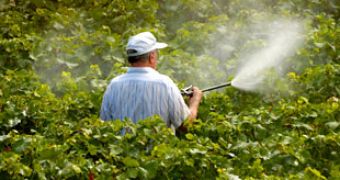According to a new study published in today's print issue of the journal Neurology, people who live close to agricultural lands and suffer from head traumas are thrice as likely to develop Parkinson’s disease.
Apparently, specialists have long been aware of the fact that either one of these two conditions (i.e. pesticide exposure and head injuries) can up the risks for developing Parkinson’s as an individual ages.
However, it was only now that researchers looked into how the brain reacts to a combination of these two factors, the American Academy of Neurology explains.
Prior to developing their theory concerning the link between pesticides exposure, head trauma and Parkinson’s disease, the specialists analyzed the medical history of 357 people suffering with said medical condition.
Thus, they found that 12% of them had sustained head injuries, and that 47% had been exposed to a common pesticide known as paraquat.
“While each of these two factors is associated with an increased risk of Parkinson’s on their own, the combination is associated with greater risk than just adding the two factors together,” explained specialist and study author Beate Ritz.
According to this researcher, serious head injuries which translate into an individual's losing consciousness for more than five minutes up the brain cells' vulnerability to the effects of pesticides such as paraquat, and this, in turn, allows for Parkinson’s disease manifesting itself earlier and more easily.
On the other hand, it is very well possible that pesticides exposure weakens the human brain, causing it to react worse to any potential traumas is may sustain.
As Beate Ritz puts it, “This study suggests that the physiological process that is triggered by a head injury may increase brain cells' vulnerability to attacks from pesticides that can be toxic to the brain or the other way around, for example, chronic low dose exposure to pesticides may increase the risk of Parkinson’s after a head injury.”

 14 DAY TRIAL //
14 DAY TRIAL //